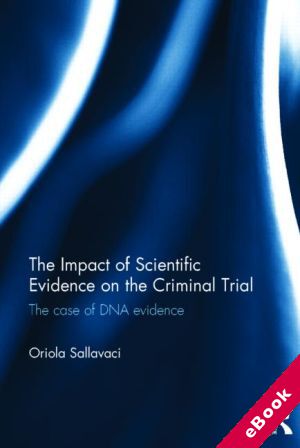
The device(s) you use to access the eBook content must be authorized with an Adobe ID before you download the product otherwise it will fail to register correctly.
For further information see https://www.wildy.com/ebook-formats
Once the order is confirmed an automated e-mail will be sent to you to allow you to download the eBook.
All eBooks are supplied firm sale and cannot be returned. If you believe there is a fault with your eBook then contact us on ebooks@wildy.com and we will help in resolving the issue. This does not affect your statutory rights.
The English criminal trial is of central importance in the structure of the criminal justice system. It is traditionally perceived as a public, oral and continuous event in which the prosecution case is presented and tested by professional lawyers in front of an impartial adjudicator and the verdict of guilty beyond reasonable doubt reached by the jury is based solely on the evidence presented to the court. Today the contested criminal trial faces many challenges which affect its traditional principles and values, features and procedures as well as its very existence.
This book considers how the increasing use of and reliance upon scientific evidence in the fact finding process is a significant factor in challenging the traditional principles and procedures of criminal trial. While exploring the use of DNA evidence it identifies challenges which until now have received remarkably little attention. The book draws on interviews with key personnel including forensic scientists, lawyers and police to examine some of the limitations of existing theories of the criminal trial process in the face of the increased use of scientific evidence in the court room. The book contends that tensions arise when scientific evidence is relied upon at trial in part because of its complexity but also because of the scientific illiteracy of many trial actors, unfounded expectations as to what scientific evidence can and cannot do, and inadequate pre-trial communication between lawyers and experts. The book concludes by advocating measures to help question undue deference to scientific reasoning currently frequently mirrored in trial narratives which can mislead the jury.